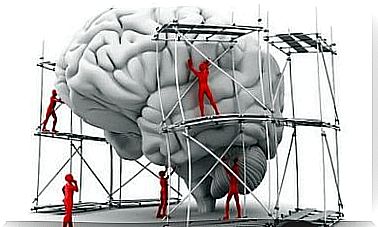What Is Your Dominant Intelligence?

They say that Einstein and Chaplin, two people known for their intelligence, met by chance together during a social occasion. They started talking and Einstein said to Chaplin: “What I have always admired about you is that your art is universal. Everyone understands and admires it ”.
Chaplin cunningly replied: “Your skill is much more worthy of respect: everyone admires you and no one understands you.” In this case, we see two people with two different types of intelligence in contact with each other. In fact, there is no single form of intelligence: there are many.
The theory of multiple intelligences was devised in 1983 by Howard Gardner, a professor at Harvard University. This theory starts from the concept that there is no specific intelligence that provides the ability to solve problems and process precious goods, but there are intelligences of different types linked together.
Gardner and his collaborators showed that there are people who get good grades in college, but who don’t know how to relate adequately to others.
Then, there are pupils who are not exemplary at all, but who are very adept at relating to the people around them. This fact shows that it is not that some are more intelligent than others, they have just developed two different intelligences.
The types of intelligence proposed by Gardner
Research carried out by Gardner and his team supports the idea that there are up to 8 different types of intelligence. Each person possesses, at distinct levels, each of these 8 types and combines them in an equally different way than the others. This way of mixing different intelligences is what makes us unique. The 8 intelligences according to Gardner are the following:
Linguistic intelligence
Linguistic intelligence is the ability to use words effectively, making good use of the structures of language, phonetics, semantics, etc. Individuals such as politicians, poets, writers and journalists tend to develop this type of skill through the use of speech, both written and spoken.

Logical-mathematical intelligence
Logical-mathematical intelligence is linked to the ability to reason logically and to solve mathematical problems. The speed in solving problems of this type is the indicator that determines the level of logical-mathematical intelligence. Scientists, engineers, mathematicians and economists are used to developing this kind of intelligence.
Spatial intelligence
Spatial intelligence is the ability to construct spatial images, to draw and identify details, all seasoned with a special feeling for aesthetics. Skills of this kind are typical of painters, photographers, designers, publicists, architects, creatives, etc.
Musical intelligence
Musical intelligence is related to musical skills, such as rhythm and melody. It serves to create new sounds, to express emotions and feelings through music. This category includes musicians, singers, composers, conductors, dancers, etc.

Body-kinesthetic intelligence
Bodily-kinesthetic intelligence refers to everything related to movement, both the bodily one and that of objects and reflections. It is used in activities that require coordination and controlled rhythm. It is present in dancers, surgeons, craftsmen, athletes, etc.
Intrapersonal intelligence
Intrapersonal intelligence is related to self-knowledge, processes inherent in self-confidence and self-motivation. We use it to understand what we do and to value our actions. It is particularly developed in theologians, psychologists and philosophers.
Interpersonal intelligence
Interpersonal intelligence is the ability to relate to others. It includes the ability to use gestures, to control the voice and to employ facial expressions. It is present in actors, politicians, professors, etc. It is very valuable for people who work in large groups, as it helps them identify and understand other people’s problems, as well as manage the group.
Naturalistic intelligence
It consists in the ability to distinguish, classify and use elements of the environment, objects, animals or plants. People of this category have a great capacity for observation, experimentation and conclusions elaboration ; among them are ecologists and botanists.
Gardner argues that all individuals possess all 8 intelligences, but there is always one that prevails. To cope with life, it is important to learn to master most of these intelligences, regardless of our profession.









